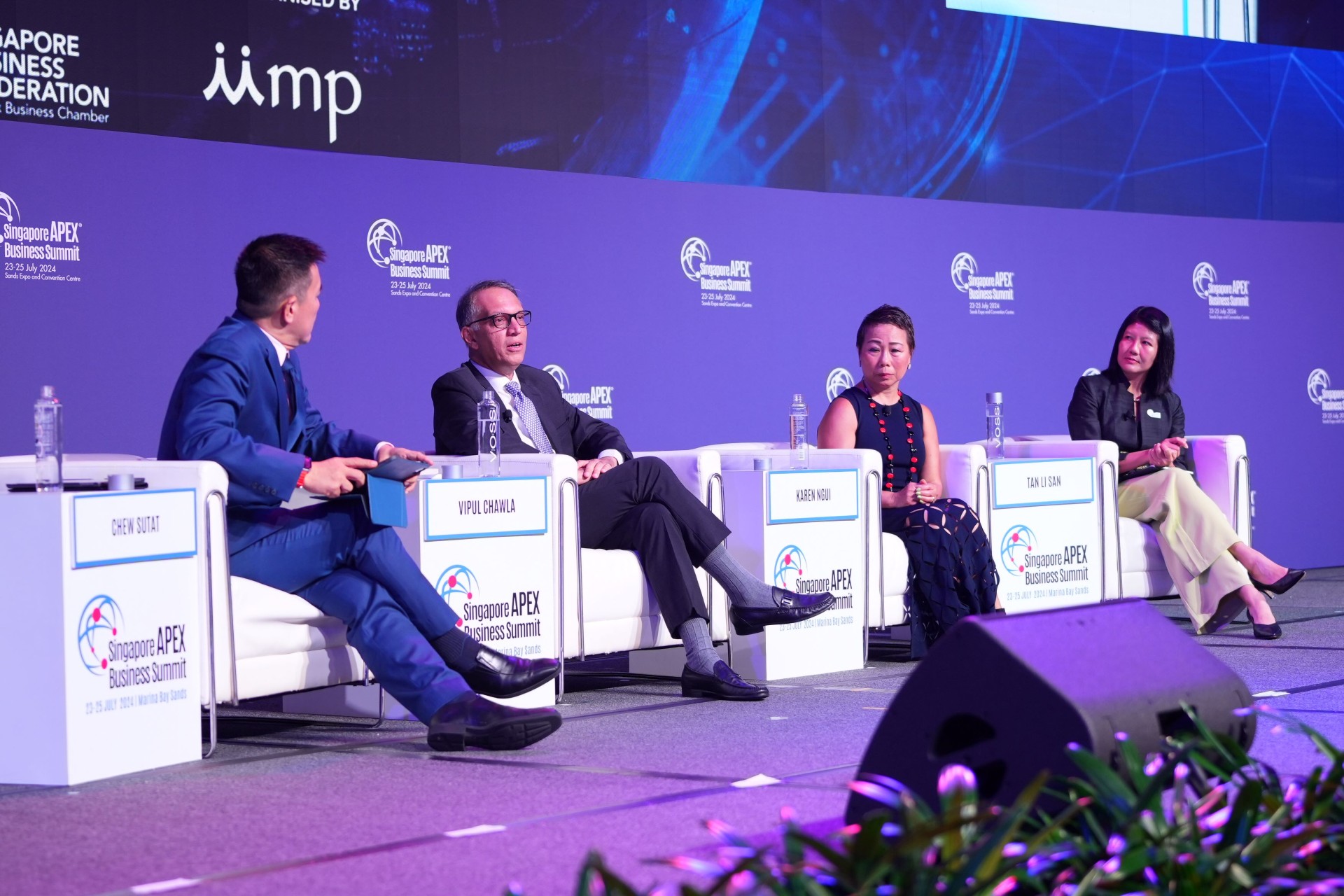
Date published: 24 July 2024
Today, Asia finds itself at a critical juncture where the forces of globalisation and sustainability intersect, presenting both opportunities and challenges that will shape its future. As the world's most populated continent and a new powerhouse of economic growth, Asia is a hub for global trade, innovation and cultural exchange. However, alongside its rapid development, the region faces challenges about the sustainability of its growth and its impact on the environment.
Day 2 of the Singapore Apex Business Summit (SABS®) focused on how “End of Business as Usual” is transforming regional collaborations towards a sustainable future at the Singapore Regional Business Forum (SRBF®).

The "When Titans Clash: New Era of Globalisation" panel discussed how Asia's openness to trade and investment has fueled economic growth, but recent geopolitical shifts pose challenges to its export-driven model. The clash between economic powers like the US and China has intensified trade tensions and calls for reevaluating global supply chains.

Concurrently, "Asia’s Path to Net Zero: Challenges & Collaboration" addressed Asia's necessary journey towards sustainability. Despite contributing over 50% of global carbon emissions, the region is increasingly committing to climate goals and adopting renewable energy.
Southeast Asian countries, despite varying levels of development, are increasingly adopting renewable energy and sustainable practices to mitigate environmental impacts and promote green growth. However, urbanisation and energy demands put a strain on natural resources and ecosystems.
Balancing economic growth with environmental stewardship requires innovative policies, technological investments and international cooperation. The transition to a low-carbon economy requires substantial investments in clean energy infrastructure and regulatory frameworks which some countries may not have resources to do so.
Navigating these complexities, Asia seeks to balance economic prosperity with environmental stewardship through innovative policies and international cooperation which will be pivotal in shaping a resilient and inclusive future.

During the day, there were also engaging conversations including Opportunities in Asia Digital Economy, Philanthropy in Asia: From Randomised Acts to Impactful Change and the successful launch of Sustainable Philanthropy Framework by the National Council of Social Service (NCSS).

This framework is designed to help businesses enhance their brand value and take on a more sustained and longer-term approach to resource the sector and give back to the community. It seeks to provide a robust mechanism for businesses to adopt and measure the outcomes of their existing philanthropic practices.
The day closed off with a Future-ready Networking Dinner presided by Minister of State Alvin Tan that brought the newly conferred Companies of Good and regional business leaders together, fostering meaningful connections among creating collaborative opportunities that drive positive social impact.
